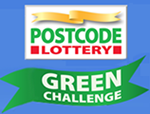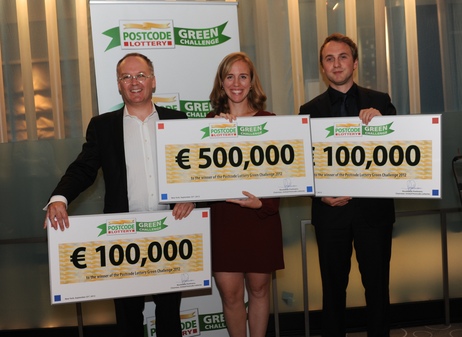World-Beating Green Ideas to Help the Planet
Published Jan-27-13Breakthrough:
A young start-up company wins a global contest for making biodegradable plastics out of a greenhouse gas.
Company:
Postcode Lottery, Netherlands
The Story:
 Since 2007, the Postcode Lottery Green Challenge has been providing an open innovation contest platform to encourage and help social entrepreneurs develop innovative and sustainable products and services that reduce greenhouse gas emissions. According to the organizers it’s the world's largest annual award for sustainable entrepreneurship.
Since 2007, the Postcode Lottery Green Challenge has been providing an open innovation contest platform to encourage and help social entrepreneurs develop innovative and sustainable products and services that reduce greenhouse gas emissions. According to the organizers it’s the world's largest annual award for sustainable entrepreneurship.Its origins date back to 2006 when President Clinton visited the world meeting of Postcode Lottery charity at the Royal Palace in Soestdijk. He said that: The fundamental problem is an entrepreneurial, disorganized, undercapitalized opportunity competing against a highly organized, overcapitalized, old-energy economy that still has many, many people in its grip."
Following the speech the charity’s leaders got together and decided that it would be a good idea to fund an international competition for innovative CO2 reducing ideas.
Widespread Response
The contest’s sixth edition was held in 2012 and attracted a fantastic response with 509 submitted entries from 72 countries. These were evaluated by a panel that consisted of seven international experts. Judging was based on set criteria that included the potential to reduce greenhouse gas emissions and realisability of the product or service within the following two years.
Judging was a two-stage procedure. At the first stage a shortlist of six was drawn up and these were invited to present their ideas to an audience in Amsterdam. The three most popular proposals then went on to the next stage, a dinner in New York during the Clinton Global Initiative where once again they had to present their ideas.
Winner and Runners-Up
The eventual winner was Molly Morse whose company, Mango Materials uses bacteria to transform methane into a biodegradable substance that is a low-cost alternative to plastic. It can be used in a number of products such as toys, packaging and construction materials. Once these products have past their shelf-lives they can be sent to landfill or a digester and the resulting methane returned to the microbial processes. Morse received $630,000 (€500,000) to develop her green business.
"Thanks to this generous prize, soon consumers will be able to buy goods made from biodegradable plastic for an affordable price," said Morse. "And that’s going to be so much better for the environment. Our bioplastic is an environmentally friendly alternative to traditional plastic, which piles up in nature and garbage dumps."
The two runners up won $125,000 (€ 100,000) each for their CO2-reducing business ideas. Daan Weddepohl’s ‘Peerby’ is an app and website that enables people to rent goods from others who live nearby. This reduces the need for new products and so carbon dioxide emissions are lowered.
The other runner-up was Nick Gerritsen whose CarbonScape uses industrial microwave energy to convert waste biomass such as timber site residue into carbon-neutral products such as green coke and activated carbon. It can cut emissions by replacing fossil carbon in industry. Additionally, energy generated by its processes is converted to electricity. This lowers its carbon footprint still further.
Going Forward
As well as the prize money the winner and both runners up were introduced to a network of contacts to help them develop and scale up their business models.
Next Story »


